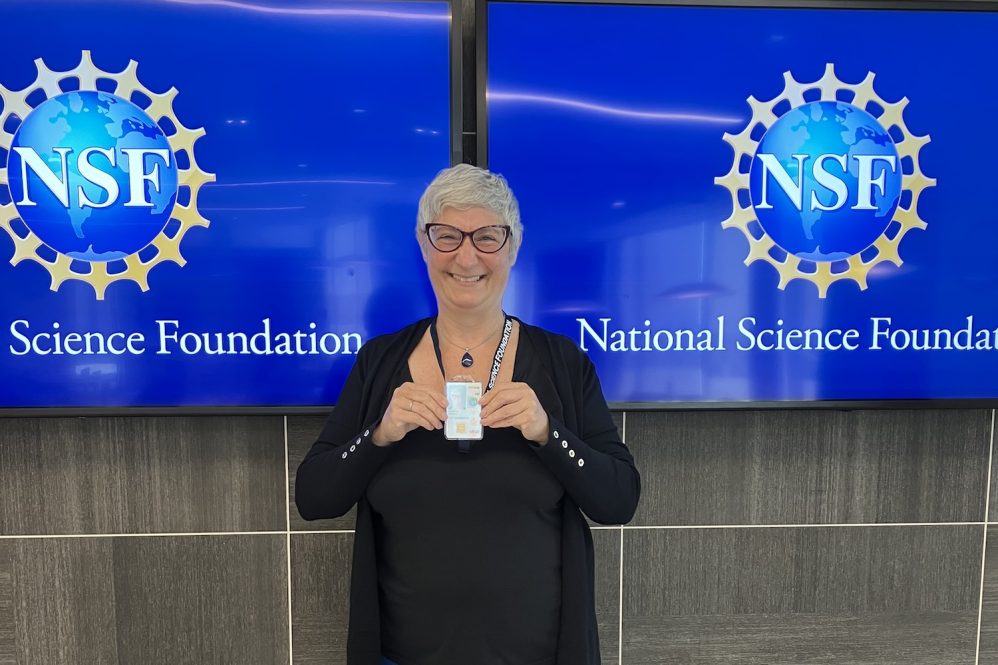Marie Coppola, a professor of psychological sciences, grew up in a working-class neighborhood in Northeast Philadelphia as the child of two deaf parents.
As a teen, she earned a scholarship to attend a private Catholic high school, and immediately stood out as a student who excelled at STEM. With not much awareness of various career paths, and a desire to do well and help others, Coppola enrolled at the Massachusetts Institute of Technology with a biomedical engineering major.
However, it didn’t take long for Coppola to realize that she wasn’t interested in engineering and by sheer coincidence found herself quickly changing paths towards learning psychology after her roommate came home excited with her introduction to psychology textbook.
“I thought it was super cool and I changed my major to Cognitive Science the next day because I really didn’t like engineering and I had not realized the different ways people study how humans learn,” Coppola says.
Now, halfway through her career, Coppola’s firsthand experiences, interdisciplinary approach to her field, and desire to implement change has led her to the nation’s capital as an American Association for the Advancement of Science (AAAS) Science & Technology Policy Fellow working to create national policy with the National Science Foundation.
“I have become extremely aware of the persisting injustices that people with disabilities experience,” Coppola says. “The only real solutions are going to come from the federal level. That is why I was really attracted to the fellowship.”
After more than 20 years of work across several interdisciplinary areas including developmental psychology, sign language linguistics, and non-profit international work, Coppola is in Washington D.C. to learn about national science policy.
“I just never saw myself as an agent of that kind of change,” Coppola says. “I thought my role is what I’ve been trained to do: research, write about it and put it out in the world so other people can take it up and implement it.”
But while her time as a researcher and professor has allowed her to have some impact, especially training and mentoring students who go on to be speech– language therapists and making a research impact, she wants to do more.
“I’m just impatient,” she says. “I want change to happen faster and at a higher level because education and early intervention tends to be decided at a very local level.”
At NSF, Coppola is a member of the leadership team for the public access and open science working group, which works to think of ways the organization can abide by executive mandates that make federally funded research publicly accessible.
“When they talk about accessibility, they’re talking about not having to pay for research articles. When I talk about accessibility, I am talking about blind people being able to read those papers,” Coppola says of the perspectives she’s brought to the group.
She is also working on increasing participation and funding for disabled scientists and addressing t accessibility issues faced by disabled researchers. She has co-organized a workshop held at NSF highlighting the research of scientists with disabilities and exploring ways to address inaccessibility in the scientific enterprise.
Coppola has also been working on her own professional development, learning about policy, and making connections with other fellows in the program, across NSF and other federal agencies, including at the White House.
She will remain in D.C. for an additional year to continue to develop her skills and network.
“It’s been extremely exciting and stimulating for me. I’m trying to figure out what I want to be when I grow up,” Coppola jokes.
She hopes her time as a fellow not only allows her to have a hand in shaping national policy but gives her more tools and resources that she can bring back with her to help increase equity and accessibility at UConn.



